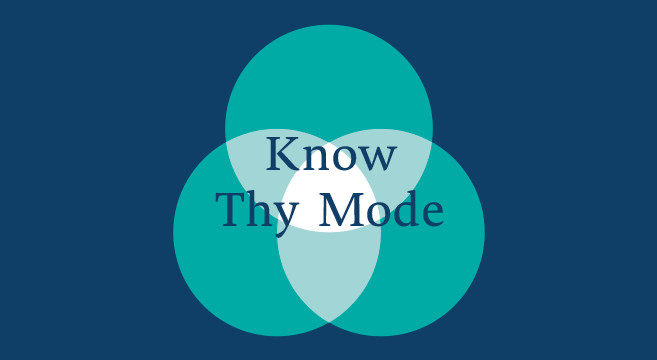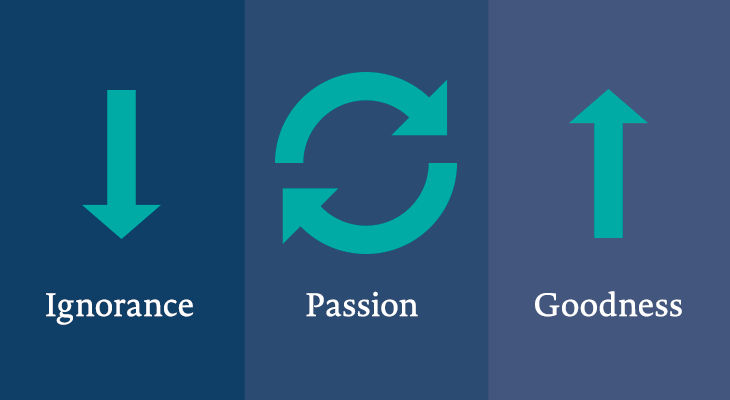Who are we – helpless victims of a cruel world or masters of our own destiny? Nitesh Gor gives us a clue in the following excerpt from his book ‘The Dharma of Capitalism – A Guide to Mindful Decision Making in the Business of Life’
[hr]
Hindu and Buddhist philosophies break down human behaviour into three basic instincts or tendencies: creation, preservation and destruction. These three gunas, as they are known by their Sanskrit name, describe a cycle of evolution that should sound familiar.
In love, for example, relationships tend to begin with passion, evolve into commitment and marriage, and too often end in boredom or rancor. In business, the cycle similarly begins with the passion required to invent things, innovate processes, and build companies. The second step is making those companies profitable, sustainable and responsible. Finally, when we aren’t mindful, they become casualties of complacency and carelessness, as did Wall Street investment banks that bet heavily on risky credit vehicles.
The response to the destructive phase is often focused on blame, punishment and regulation aimed at keeping it from happening again. These are passionate reactions that assume we can engineer better outcomes by isolating bad people and discouraging bad behaviour.
But the history of business is built on failure. The nature of capitalism is a ‘perennial gale of creative destruction’, observed economist Joseph Schumpeter in 1942.
The Dharma of Capitalism explains the gunas as three principal motives or modes of behaviour by which every decision can be assessed – the Modes of Ignorance, Passion and Goodness. In ascending order, they also describe increasing levels of awareness. The process of good decision-making begins with evaluating the choices we face to determine whether the primary motivation is complacency, carelessness or oversight (ignorance); greed, pride or some short-term benefit or reaction (passion); or whether the motivation takes into account all stakeholders and the decision is informed by knowledge of and custodianship for outcomes (goodness).
The Three Modes are by definition hierarchical: from the inaction of Ignorance we move up the scale to the activity of Passion and from there strive to achieve the balance and mindfulness of choices made primarily in the Mode of Goodness. There is no finish line or mountain top in this process. All three of the Modes are at work in almost every situation and in every person, to one degree or another.
BELOW: If you accept the dharmic notion that there is a higher purpose to business and money than profit and pleasure, the Modes will help you stay on track by identifying which is dominant at any given time.
The Mode of Goodness
[box size=”normal” icon=”” border=”none”]Often the tough choice, to act mindfully, with knowledge, purpose and a desire for the long-term benefit of all, characterized by fairness, transparency and trust. This is the mode in which we resist quick fixes and consider the lasting and unseen consequences of every action and choice.[/box]
The Mode of Passion
[box size=”normal” icon=”” border=”none”]The alluring choice, acting on the desire for short-term pleasure or results, characterized by pride, narcissism, extremes, unpredictability. This is the engine of greed, addiction and risk-taking, but also of inspiration, innovation and entrepreneurial success.[/box]
The Mode of Ignorance
[box size=”normal” icon=”” border=”none”]The lazy choice, acting out of carelessness or disregard for consequences, characterized by lethargy, cynicism, a desire for quick relief from suffering, taking the easy way out.[/box]







